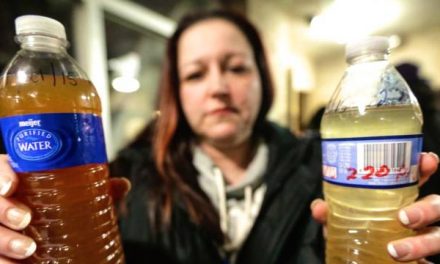In June the DOJ “issued a stern warning in its lawsuit against the conditionally-approved mega-merger between Bayer and Monsanto” 1 saying that the anti-competitive price effects of the merger would likely “result in hundreds of millions of dollars per year in harm, raising costs to farmers and consumers.”2
RELATED STORY:
The Justice Department warned that combining Bayer and Monsanto would reduce competition for vegetable seeds and most likely drive up prices. Additionally, farmers might also see prices for GMO cotton, canola, corn and soybean seeds increase, as well as the price on herbicides and seed treatments.
“After imposing some limited divestments on Monsanto, the DOJ approved this merger, enabling Monsanto to hide its controversial name brand while giving Bayer anti-competitive control over seeds, pesticides, farmers, and consumers worldwide.
The DOJ is on the brink of essentially authorizing a monopoly. This is bad news for nearly everyone on the planet except Bayer and Monsanto executives and shareholders. Aside from a combined Bayer-Monsanto, only three other seed companies will be in the market manufacture and sell these products.”3
And a consolidated food system means less choice for we the people.
Ninety-three percent of farmers questioned expressed concern that the new behemoth would harm independent farmers and farming communities (a legitimate concern) by: 4
- using their dominance in one product to push sales of other products
- controlling data about farm practices and
- by creating increased pressure for chemically dependent farming.
There’s also real concern that a large portion of the price increases will come from new GMO’s; “between 32 and 74 percent of the price of seed for corn, soybeans, cotton and sugar beets in the United States and the European Union was estimated to reflect technology costs or the cost of seed treatments.”5
But it’s not just the farmers that are concerned. As we stated above, this deal hurts consumers as well. Many of whom have been very vocal about the merger. To date, the DOJ has received petitions from over 1 million Americans urging the agency to block the merger. And the Iowa Attorney General Tom Miller sent a letter with the state attorneys general from California, Massachusetts, Mississippi, and Oregon, opposing the merger as well.
RELATED STORY:
Farmers shouldn’t have to take on second jobs but it’s happening; this year a full 82 percent of U.S. farm household income will come from off-farm work (in the 1960’s that number was 53 percent).
“Farmers aren’t fooled by claims that Monsanto divestments will make this merger beneficial and non-monopolistic. Consumers and policymakers shouldn’t be fooled, either. On our farms, in our soil and on our supermarket shelves, the merger of Bayer and Monsanto means fewer options for a cleaner, healthier and more farmer-friendly food system.”6
It’s not too late, the DOJ needs to stop this merger and save farmers and consumers from this new monopoly.












